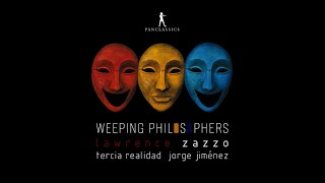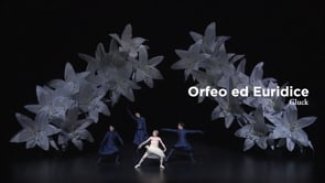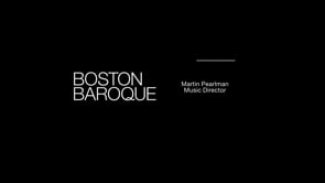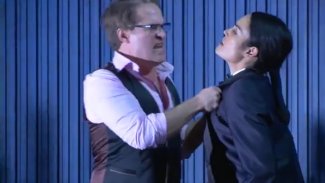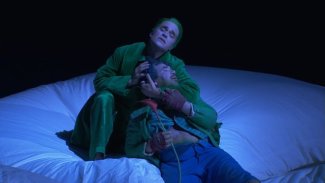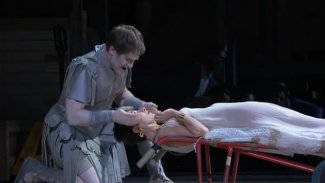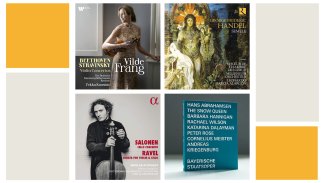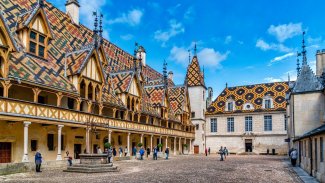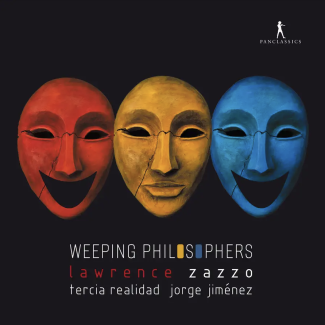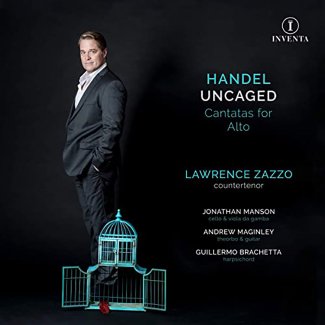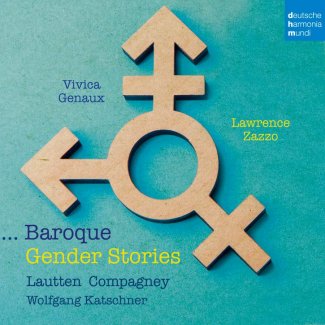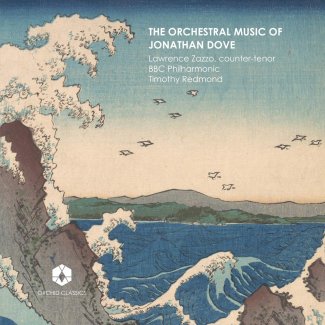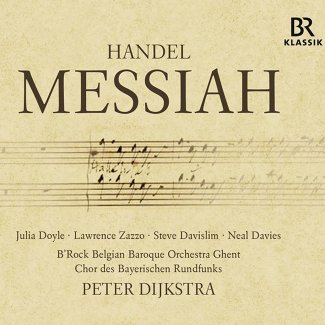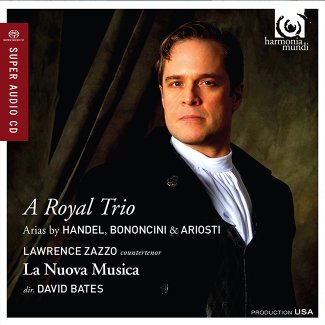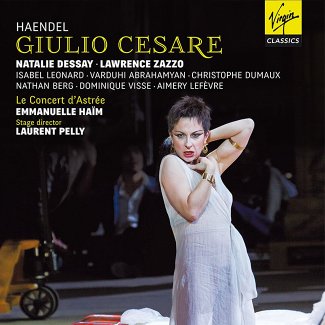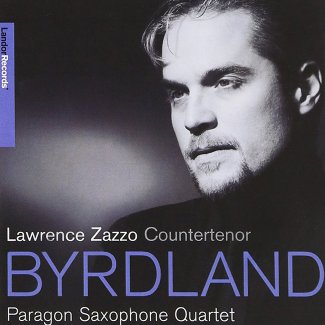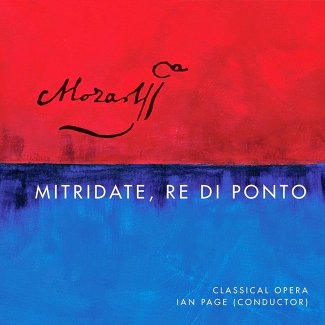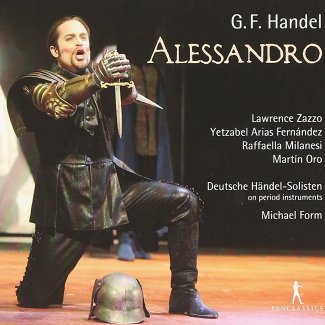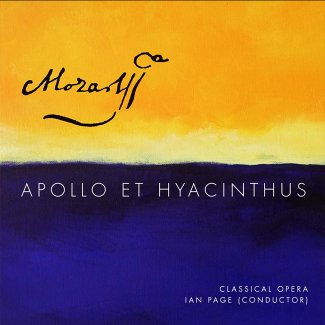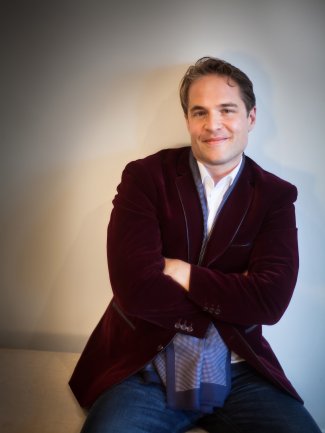
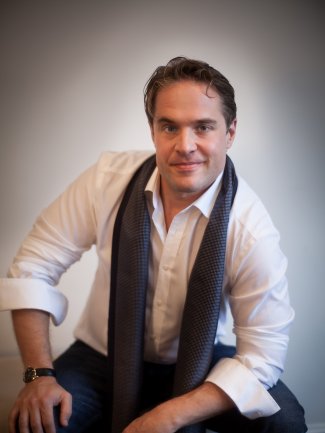
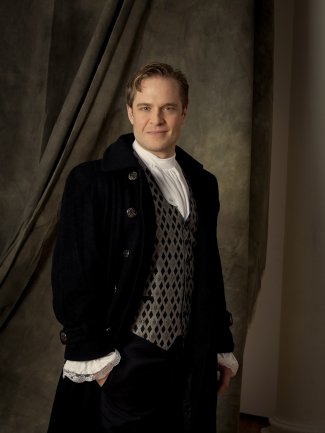
Lawrence Zazzo
“Lawrence Zazzo gave a Giulio Cesare beyond the heroic … his countertenor voice sounding wonderfully smooth, enthralling the audience with stupendous coloratura and a moving presence.”
Der Opernfreund, March 2024
In a career that has taken American countertenor Lawrence Zazzo to many of the world’s leading opera houses and festivals, his mastery of coloratura and uniquely nuanced characterisations remain the hallmarks of his ongoing success. Last season saw debuts at Teatro alla Scala in Laurent Pelly’s new production of Gassmann’s L’Opera Seria under Christophe Rousset and as Rinaldo at Händel-Festspiele Karlsruhe under Rinaldo Alessandrini. This season he returns to Oper Frankfurt as Tolomeo (Giulio Cesare) conducted by Laurence Cummings and to Händel-Festspiele Karlsruhe for a revival of Rinaldo.
Lawrence Zazzo made his operatic debut as Oberon in Britten’s A Midsummer Night’s Dream while still at London’s Royal College of Music and has since performed the role extensively to great acclaim, including at Canadian Opera Company, Festival d’Aix-en-Provence, Staatsoper Hamburg, Scottish Opera and most recently Wiener Staatsoper in Irina Brook’s staging. Highlights of an illustrious career include Disinganno in Robert Carsen’s production of Il trionfo del tempo e del disinganno at the Salzburg Whitsun and Summer festivals alongside Cecilia Bartoli and conductor Gianluca Capuano, Farnace (Mitridate, re di Ponto) for Bayerische Staatsoper, Tolomeo (Giulio Cesare) at the Metropolitan Opera, Ottone (Agrippina) at Théâtre des Champs-Élysées, Goffredo (Rinaldo) for Staatsoper Berlin and Opernhaus Zürich, and Ottone (L’incoronazione di Poppea) at Theater an der Wien, La Monnaie and Bayerische Staatsoper. In the title role of Giulio Cesare, Zazzo has appeared at Oper Frankfurt in Nadja Loschky’s recent new production, as well as at Opéra national de Paris, La Monnaie, English National Opera and Semperoper Dresden. As Radamisto he has appeared at English National Opera, Orlando at Welsh National Opera, Solomon at Royal Ballet & Opera, Tamerlano in R.B Schlather’s innovative production at Oper Frankfurt’s Bockenheimer Depot, and as Orfeo (Orfeo ed Euridice) with Canadian Opera Company, Den Norske Opera, and New National Theatre Tokyo, recently released on OperaVision.
See more
With a strong affinity for contemporary repertoire, Zazzo has created several characters including Mascha in Peter Eötvös’ Tri Sestri, the Refugee in Jonathan Dove’s Flight for Glyndebourne Festival Opera, and Trinculo in Thomas Ades’s The Tempest at the Royal Opera House, Covent Garden. He gave the world premiere of Dove’s Hojoki with BBC Symphony Orchestra under the late Jiří Bělohlávek and created the role of Odysseus in the world premiere of Rolf Riehm’s Sirenen for Oper Frankfurt conducted by Martyn Brabbins. Zazzo gave the premiere performance of Paradise Lost, a monodrama recently written for him by Geoff Page, to unanimous critical acclaim.
Admired for his curation of imaginative and thematic programming, the most recent addition to Zazzo’s impressive recording catalogue is Weeping Philosophers, which explores depictions of philosophers in Baroque music, released on the Pan Classics label in 2024. Other discs in his extensive discography include Handel Uncaged, a cycle of cantatas for alto voice and trio (Inventa), Baroque Gender Stories, with Lautten Compagney and Wolfgang Katschner (Deutsche harmonia mundi), A Royal Trio, featuring works by Ariosti, Bononcinci and Handel with La nuova musica and David Bates (harmonia mundi USA) as well as Mozart’s Apollo et Hyacinthus and Mitridate, re di Ponto, both with Classical Opera and Ian Page (Linn Records), and the title role in Giulio Cesare with Le Concert d’Astrée and Emanuelle Haïm (Virgin Classics).
Away from the stage, Lawrence Zazzo is Senior Lecturer in Music at the International Centre for Music Studies at Newcastle University’s School of Arts and Cultures.
Contacts
General Management
Gallery
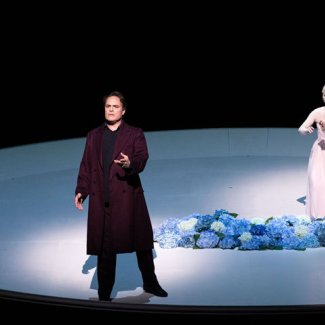
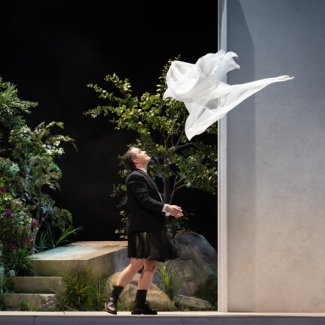
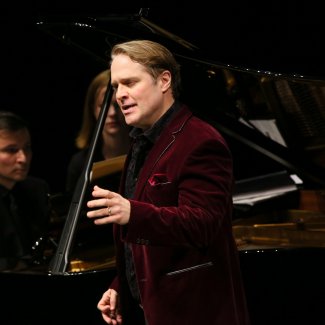
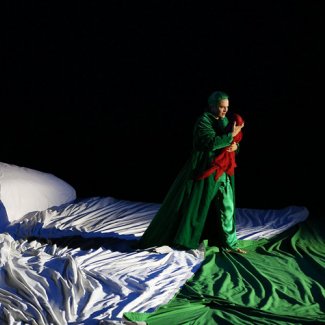
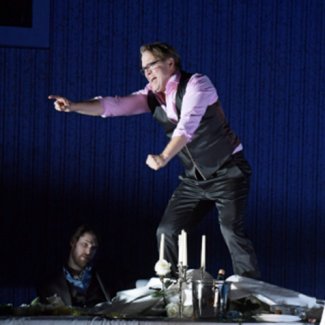

“Lawrence Zazzo is the evening’s great triumph. Having already sung the title role here, he is a completely unhinged Tolomeo. His acting as the effeminate king is breathtaking in its ease and humor (his death scene in Act III is priceless). His voice is as rich, metallic, and projects wonderfully as ever.”
“In the title role (Tamerlano), countertenor Lawrence Zazzo is particularly convincing , particularly with his magnificent mime and the vocal power he brings to bear against the looming doom.”
“In the title role (Rinaldo) Lawrence Zazzo brought his clear, confident voice to bear.”
“Lawrence Zazzo delights with his radiant, agile and confidently led countertenor.”
“One of the trump cards is the arrival in the cast of the countertenor Lawrence Zazzo, with a broad and generous timbre, capable of a thousand nuances in a song that is always very inhabited and very moving and who truly creates the character of this “wandering king” on stage. His two desperate arias, “Con rauco mormorio” in act 2 and “Chi di voi fu piu infedele” in act 3, drew sighs from the audience and a beautiful ovation. ”
“Zazzo brought depth and nuance to the role of the returning king. A veteran of this opera, having previously performed the role of Unulfo, the countertenor’s familiarity with Handel’s character dynamics was evident in portrayal of Bertarido, which combined refined vocal technique with heartfelt expressivity. Delivered with a warm, pliant tone and exquisite phrasing, his ‘Dove sei, amato bene?’ revealed the character’s aching vulnerability. In contrast, the fiery ‘Vivi, tiranno’ showcased Zazzo’s technical brilliance as he navigated the demanding coloratura with precision and bold ornamentation.”
“The brief appearance of Lawrence Zazzo and his role as a swan ready to be cooked at the tavern ensured an immediate success with the public (and their compassion at his plea to delay the fateful moment of being served at table). Arriving on stage with a napkin in hand, the countertenor and his ethereal voice rub shoulders with the clucking brass instruments, before taking out a rotisserie fork. The now carnal voice, ample and yet still swift and precise, narrates and penetrates.”
“Lawrence Zazzo is this coloratura-bursting Cesare, who is at his highest form as the consumed lover. Zazzo’s refined approach works particularly well in the quiet longing arias. In subsequent performances, Zazzo impressed even more with his fast-paced, fiery bravura arias, especially in the aria with the warm-sounding natural solo horn “Va tacito e nascosto”, where Cesare celebrates the warlike, determined hunter. A joy!”
“Lawrence Zazzo gave a Giulio Cesare beyond the heroic … his countertenor voice sounding wonderfully smooth, enthralling the audience with stupendous coloratura and a moving presence.”
“Vocally Zazzo doesn’t need any self-assurance. The countertenor masters the comic as well as melancholic subject perfectly.”
“Lawrence Zazzo also leaves nothing to be desired in the title role and presents the Roman general with a flexible countertenor. At breakneck speed he hurls out coloratura in his great aria “Empio, dirò, tu sei togliti” … Another musical highlight is the parable aria “Va tacito e nascosto” in the first act… Zazzo is also very convincing in the second act, when he is inspired by Cleopatra’s charm and presents himself with moving coloratura.. In the duet at the end, “Caro! — Bella!” he finds his way to a beguiling intimacy.”
“Zazzo is outstanding as a performer because he is always very close to the text and taps into all possible emotional expressions…Now, one would not do justice to Zazzo’s art if one did not also talk about his technique — because it is outstanding. He has perfect control of his voice and is thus able to apply all the nuances that his interpretation requires.”
“Lawrence Zazzo’s Oberon, vocally mature and commanding, visually scabrous and decadent, made a suitably amoral, ambiguous centrepiece”
“Zazzo sang with immense power and beauty, and the emotional edge in his voice, suggestive of oppressive inner turmoil, was hugely affecting.”
“Musically, it was a tour-de-force performance by Zazzo, who dominated the stage for most of the opera. He lived through the emotional rollercoaster from mourning to momentary hope, to despair and happiness again, with power and a range of colour. I hadn’t heard him live for several years, but his voice is as warm, smooth and beautifully controlled as I remembered him, and it easily projects to the back of the auditorium. His opening heartfelt cries of “Euridice” pierced our hearts, and “Che farò senza Euridice” was all the more poignant for its simplicity.”
“Experience, however, shone through especially tellingly in Lawrence Zazzo’s Oberon, a king of the fairies who was gloriously lyrical in his singing, but also a completely believable character of make-believe.”
“American Lawrence Zazzo is an internationally experienced Oberon, his pure countertenor confidently carrying ethereal shudder”
“Making his Scottish opera debut, the American countertenor Lawrence Zazzo, striking as the ethereal, almost disembodied Oberon, is pale-faced, purple-lipped, ghoulish.”
“Lawrence Zazzo makes his crystalline countertenor with polished piano tips glitter as Disinganno.”
“Lawrence Zazzo, as Insight, showed great Baroque style, his countertenor powerful…a beautiful performance overall.”
“Countertenor Lawrence Zazzo alone offers songs outside that cosy English style: he well conveys the irony of ‘God’s Love’ in Jonathan Dove’s setting of Vikram Seth; and the tart and expressive angularity of Iain Bell’s ‘Come away, Death’ is a relief after so much salted caramel sweetness.”
“Lawrence Zazzo was an excellent and devoted Unulfo”
“Weaving through gentle lyricism, strident anger, and spoken declamation, this was a performance which embraced an astonishing emotional gamut and did so with courage, commitment and impressive technical underpinning. Purity, power, presence: Zazzo evinced all three. What a show with which to return to the performing platform after months of lockdown and the silencing of one’s singing voice.”
“Countertenor Lawrence Zazzo fully throws himself into the eccentric role and brilliantly brings out the wild, ludicrous nature of the character”
“Lawrence Zazzo’s performance is the main attraction of this reprise…From the outset [Zazzo] gives us a dazzling “Presti omai”, unpredictably eventful and rich in dynamic contrast. The same febrile inventiveness electrifyingly animates the Da Capo of “Va tacito e nascosto” and the vocalizations of “Al lampo dell’armi”, with a conquering rage. Zazzo takes the role of the latin lover to heart (“Se in fiorito”, “Bello / Bella”), but he also gives us “Aure, deh, per pietà” in a version which is both more carnal and poetic than we have ever heard; a visceral interpretation with a simultaneously overwhelming delicacy.”
“A vivid performance from Lawrence Zazzo who shone the title role”.
“Zazzo gave the title role his all. Through gestures, facial expressions and vocal fire, I believed every twist of Orlando’s fate. He was convincing when mad, when fighting, even when sleeping on his feet.”
“Lawrence Zazzo is a wonderfully helpless, languishing Arsamene”
“The only countertenor this evening is Lawrence Zazzo, with a striking luster and brightness in the voice.”
“The countertenor Lawrence Zazzo was equipped with the greatest Baroque experience in this cast, and showed his strengths in his organic ornamentation”
“Lawrence Zazzo as Arsamene is an ardent countertenor with an attractively dark tone.”
“Among the soloists, the countertenor Lawrence Zazzo stood out for his enchantingly beautiful voice in the role of Delio”
“Lawrence Zazzo was astounding: he excelled in the laments (essential in the largely plaintive role of Arsace), but displayed great vitality in the recitatives (and was the only performer who really enjoyed this part of the role)…Zazzo delivered the aria [“Furibondo spira il vento”] with power and impressive aplomb…and delivered the most convincing account of this famous aria that we’ve ever heard.”
“Lawrence Zazzo, one of the great countertenors of the last decade, who not only has Arsace in repertoire [but] recorded the opera just ten years ago…Lawrence Zazzo was the star of the evening…His instrument carries an enviable volume…yet maintains its freshness and elasticity…No other countertenor shapes every word, every syllable…His initial aria “O Eurimene ha l’idea di Rosmira”, not a very interesting aria, is given new life in his hands…He conquers the impossible coloratura in “Fuirbondo spira il vento”, one of the most complicated of Handel’s, gets right to the heart in the desolate “Ma quai note di mesti lamenti”, and gives a tender rendition of “Ch’io parta? Si crudele” full of intense beauty”
“Zazzo (Arsace) sang with astounding expressivity…receiving a standing ovation from the audience.”
“Athamas was portrayed by the American countertenor Lawrence Zazzo, singing his three arias with warm, gleaming tone.”
“As the eponymous hero, Lawrence Zazzo was impressive. His sound – carefully varied – captured the edgy, tortured nature of the character, diminished by his mental state yet physically strong. Zazzo was also astute in husbanding his resources so that the long vocal stint that is his mad scene stood up as the high point of the opera.”
“Lawrence Zazzo, that most manly and forthright of counter-tenors, as a handsome Orlando whose insanity was expressed with graphic and moving power.”
“Lawrence Zazzo’s Orlando cuts a striking figure. He projects his substantial but agile countertenor to good effect, often with touching expressiveness”
“In the title role, Lawrence Zazzo’s rich countertenor turned from biting fury to melting beauty with ease…his portrayal of Orlando’s madness was one of enormous power.”
“The stately beauty of Lawrence Zazzo’s Oberon is indisputable and he successfully interprets one of the strangest roles Britten wrote”
“Lawrence Zazzo came, sang, and conquered.”
“Countertenor Lawrence Zazzo revealed a powerful, lithe voice as Semele’s rejected fiancé Athamas”

